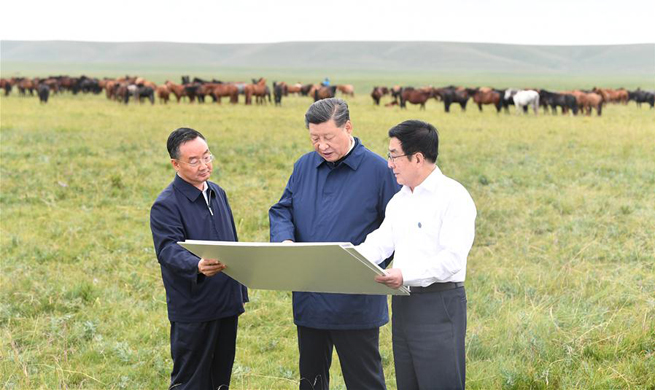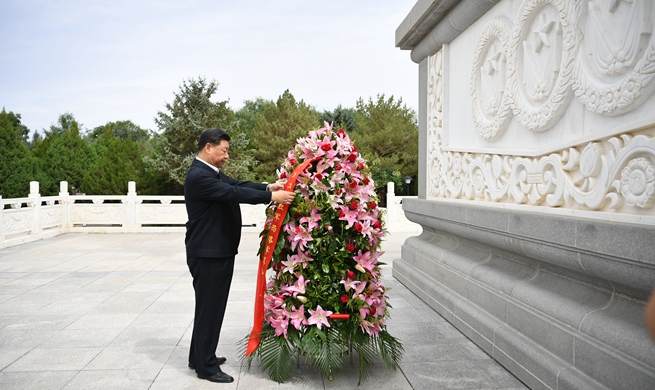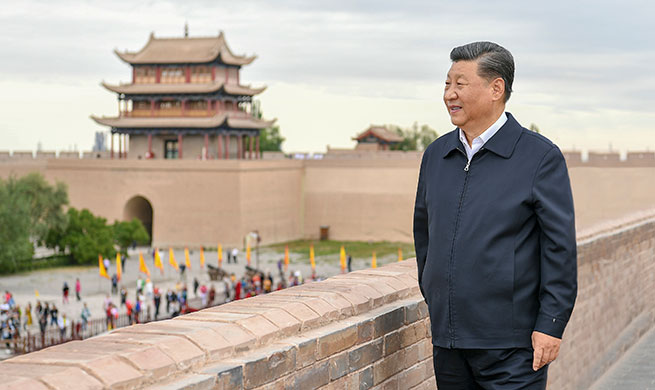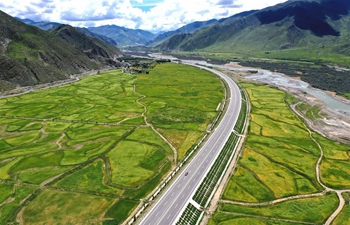by Hassan Rouhvand
TEHRAN, Aug. 20 (Xinhua) -- Tensions have soared between Iran and the United States since U.S. President Donald Trump withdrew Washington from the 2015 Iranian nuclear deal last year and imposed old and new sanctions on the Islamic republic.
Trump's decision vastly disappointed the U.S. Trans-Atlantic allies of France, Germany and Britain, as well as the European Union which played a major part, along with Russia and China, in concluding the landmark international nuclear deal, formally known as the Joint Comprehensive Plan of Action (JCPOA).
Iran's recent move to break away with the restrictions set by the accord on the stockpile of low-grade enriched uranium and its concentration has sent a firm message to the West about Tehran's decisiveness in its response to the U.S. exit.
On Monday, Iranian Foreign Ministry Spokesman Abbas Mousavi said Iran is planning a next step to reduce its nuclear commitments in case that parties to the 2015 nuclear deal fail to live up to their obligations to secure Iran's interests under the accord.
"Up to now, consultations on the implementation of the European commitments have failed," Mousavi noted.
"Efforts are underway, of course. (French President Emmanuel) Macron is making efforts," he said, adding Iran is waiting for the possible outcome of diplomatic efforts before the deadline.
Meanwhile, Europe has been trying to cushion the blow of the U.S. sanctions on Iran, ensuring Tehran that the deal, which represents the triumph of diplomacy over military conflict, will survive.
The European parties have designed a mechanism called Instrument in Support of Trade Exchanges (INSTEX) as a special purpose vehicle to maintain their trade with Iran.
However, "Europe will not be able to push back against the United States because the American and European economies are closely intertwined," said Abbasali Mansouri Arani, an Iranian political analyst.
European special financial mechanism will fail to protect Iran's economy in the face of U.S. sanction pressures because of Europe's "heavy economic reliance on the United States," Arani noted.
Although "the EU-designed mechanism flows through barter without the U.S. dollar and SWIFT transactions" and seeks to shield both the EU and Iranian traders and companies against U.S. sanctions, the Iranian expert believes that the U.S. threats to sanction European firms and individuals dealing with Iran have deterred most European entities interested in working with Iran.
Meanwhile, INSTEX has also failed to convince the Iranians of its usefulness in solving Iran's trade with Europe as it limits the trade to humanitarian goods such as food, medicine, and medical equipment.
Iranian officials have repeatedly demanded INSTEX include "oil sales or provide substantial credit facilities" to create a real beneficial mechanism.
"The nuclear agreement and cooperation with Iran are important to European governments, but they are not willing to pay the price of defying Washington," said Mansouri Arani, an expert on international affairs.
Strengthening ties with the Middle East countries as well as the eastern powers such as China and Russia can serve Iran's interests "in the light of the expected failure of INSTEX," he noted.

















